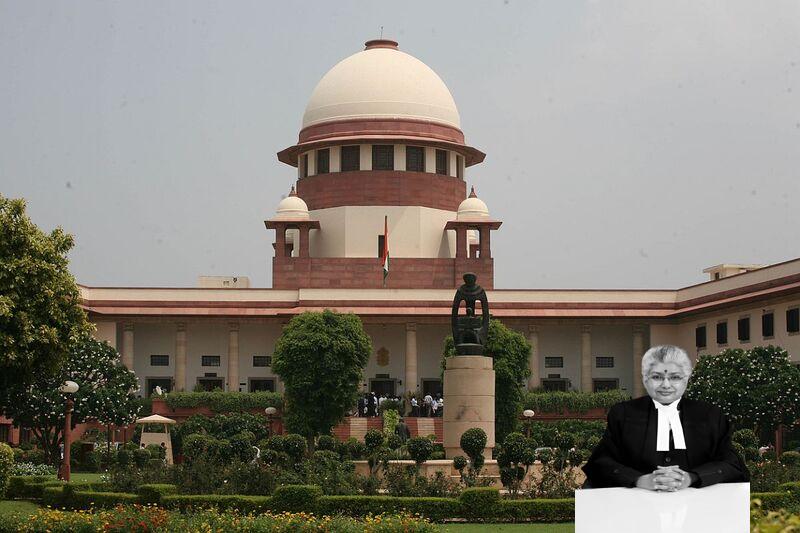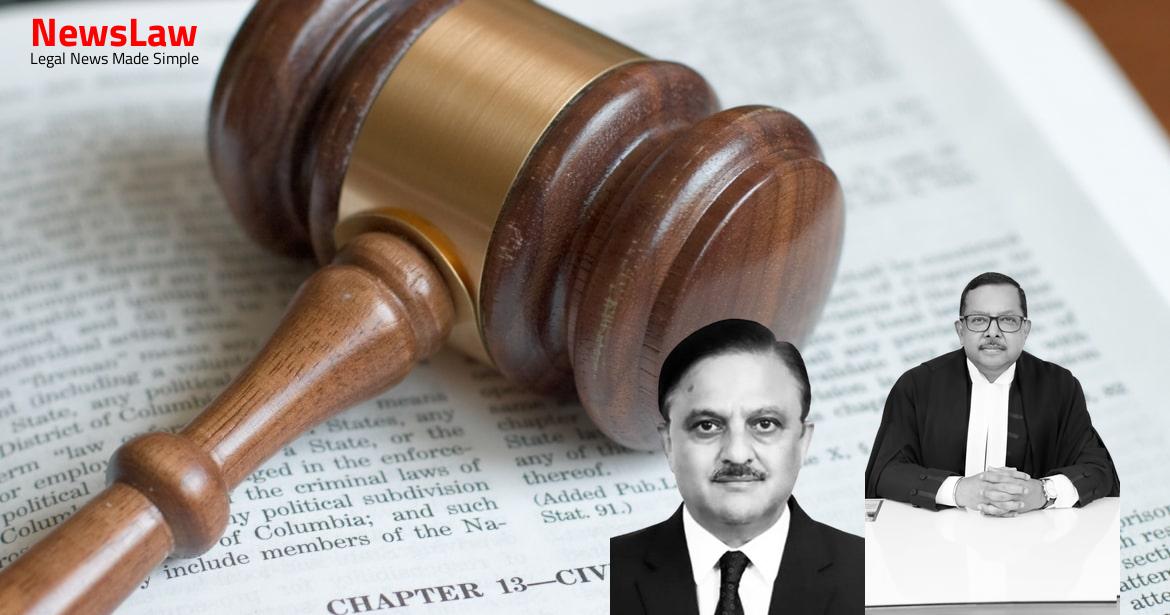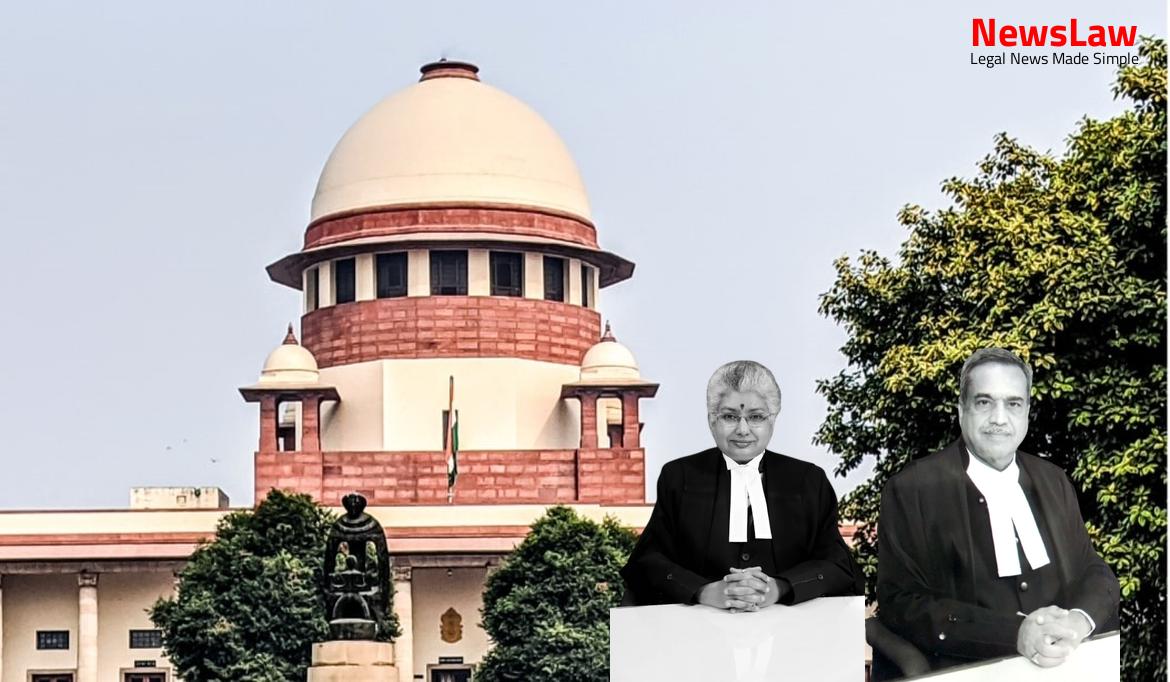The aforesaid appeal was filed by the Punjab National Bank against the order dated 12.08.2021 passed by the National Company Law Tribunal, Kolkata 2 Bench, Kolkata (briefly the ‘Tribunal’ hereinafter) in I.A. Thereafter by way of an e-mail dated 29.06.2021, Respondent No.2 forwarded a similar notice dated 28.06.2021 for auction sale of the assets of the corporate debtor scheduled on 20.07.2021. (vii) On 20.07.2021, appellant received an E-auction certificate from Respondent No.2 certifying that it had won the auction for the assets of the corporate debtor put up for auction sale (referred to hereinafter as the ‘subject property’). It is stated that on 21.07.2021 itself appellant received an e-mail of the aforesaid date from Respondent No.2 informing that 4 Respondent No.2 had cancelled the E-auction held on 20.07.2021 under Clause 3(k) of the Disclaimer Clause in the E-Auction Process Information Document. However, by the impugned order dated 30.11.2021, Appellate Tribunal allowed the appeal and set aside the order dated 12.08.2021 passed by the Tribunal. Respondent No.1 – Punjab National Bank in its counter affidavit at the outset pleaded that the appeal deserves to be dismissed at the threshold and that the impugned order of the Appellate Tribunal upholding the decision of the Liquidator to cancel the auction sale is fully justified. In this connection, Respondent No.1 has referred to Clause 3 (k) of the auction sale notice which says that the Liquidator has the absolute right to accept or reject any or all the bids or adjourn/postpone/cancel the E-auction or withdraw any asset/property or portion thereof from the E-auction at any stage without assigning any reason. There is no express bar or prohibition either under the Code or under the Regulations restraining the Liquidator from cancelling an auction sale even after declaration of the highest bidder but before completion of sale 7 as understood under Clause 13 of the Regulations. It is stated that Respondent No.2 in his written submission before the Tribunal had stated that he was informed by way of e-mail dated 05.08.2021 by Kapila Krishi Udyog Pvt. Liquidator had submitted that later on it had received letter dated 05.08.2021 from Sugna Feeds Pvt. Appellant while submitting its bid vide application dated 16.07.2021 had accepted the terms and conditions of the auction process shared by the Liquidator which contained paragraph-7.
By an E-auction notice dated 02.06.2021, the assets of the corporate debtor being, inter alia, poultry feed farms at Lucknow (Lot No.2) and Mirzapur (Lot No.3) were put up for auction with reserve prices of Rs.11.30 crores and Rs. According to Respondent No.2, the subject property had a cost of Rs.17.30 crores and written down book value of Rs.8.59 crores as compared to Lot No.2, which had cost of Rs.9.28 crores and written down book value of only Rs.2.45 crores. Clause 3 (k) says that the Liquidator has the absolute right to accept or reject any or all bids or adjourn/postpone/cancel the E- auction or withdraw any asset/property or portion thereof from the E-auction at any stage without assigning any reason thereof.
As per Clause 2 (h), on the close of the auction, the highest bidder shall be invited to provide balance sale consideration within 90 days of the date of such demand. Thereafter, by an e-mail dated 21.07.2021, Respondent No.2 informed the appellant about cancellation of E-auction held on 20.07.2021 under Clause 3(k) of the E-Auction Process Information Document. By order dated 12.08.2021, Tribunal allowed the application of the appellant and directed Respondent No.2 to send a communication to the appellant for depositing the balance sale consideration within the time specified in the E-auction notice. It is stated that after the order dated 30.11.2021 was passed by the Appellate Tribunal, Respondent No.2 had sent an e-mail dated 02.12.2021 calling upon the appellant to comply with the order of the Appellate Tribunal and to peaceful handover of the subject property. It is stated that in addition to the above, respondent No.2 had received an e-mail dated 20.08.2021 from IFFCO KISAN Delhi, a 13 subsidiary company of Indian Farmers Fertilisers Cooperative (IFFCO) expressing its interest in the assets of the corporate debtor. However, as the auction sale did not materialise, Respondent No.2 in the second round reduced the reserve price in order to get bidders to at least match the reserve price. Action of Respondent No.2 in cancelling the E-auction after e-mailing the appellant that it had won the bid is a clear case of abuse of the process. Vijay Kumar Ghidia was also one of the promoter directors and 15 principal shareholders of the corporate debtor. Vijay Kumar Ghidia is also the maternal uncle of the intervenor who is the ex-managing director of the corporate debtor. Before the appeal of the intervenor could be heard, the Appellate Tribunal had passed the order dated 30.11.2021 allowing the appeal of Respondent No.1 by setting aside the order of the Tribunal dated 12.08.2021.
Neeraj Kishan Kaul, learned senior counsel for the appellant at the outset submits that Appellate Tribunal fell in complete error in setting aside the order of the Tribunal and restoring the order of the Liquidator. Since Liquidator had accepted the order of the Tribunal, it was not open for him to support Respondent No.1 or the order of the Appellate Tribunal in the appeal filed by the appellant. Power of cancellation is available to the Liquidator under Clause 3(k) of the auction notice. While bidding, the appellant had unconditionally accepted all the clauses of the auction notice, including Clause 3(k).
He submits that reliance on para 1(13) of Schedule I to the Regulations by learned senior counsel for the appellant is misplaced inasmuch as a sale can be said to have been completed only on payment of the full amount and not on declaration of a bidder as the highest bidder who in any case has no vested right to claim confirmation of sale. Vijay Kumar Ghidia who is one of the directors of the appellant was also a director and principal shareholder of the corporate debtor. In so far issuance of e-mail to the appellant declaring it as the winner of the auction process is concerned, he submits that on expiry of the time for placing of bids, an auto generated e-mail from the e-auction website “ www.eauctioneer.com ” was sent to the appellant stating that the bid submitted by it was the highest. He submits that decision of the Liquidator to cancel the auction was vindicated when post cancellation 20 of auction, Liquidator received letter dated 05.08.2021 from Sugna Feeds Private Limited expressing its intention to participate in the auction of the subject property.
According to him, appellant should have been disqualified from participating in the E-auction by reason of being a ‘related party’. Vijay Kumar Ghidia is one of the directors of the appellant. Liquidator, therefore, should have cancelled the auction sale notice only on the ground that appellant is a ‘related party’ to the corporate debtor. Neeraj Kishan Kaul, learned senior counsel for the appellant submits that it was because of the activities of persons like the intervenor that the corporate debtor has landed in the present situation. Thereafter, Respondent No 2 issued second sale notice dated 28.06.2021 for auction sale amongst others of the subject property. It was mentioned therein that the E-auction sale would be subject to the terms and conditions prescribed in E-Auction Process Information Document available at the website of the second Respondent.
Clause 2 (h) says that in accordance with para 1(12) of Schedule I to the Regulations, on the closure of the auction, the 23 highest bidder would be invited to provide balance sale consideration within 90 days of the date of such demand. As per Clause 2(m), the information provided in the E-Auction Process Information Document should be read together with the provisions of the Code and the Regulations. Clause 3 (f) declares that by procuring a copy of the E-Auction Process Information Document, the recipient accepted the terms of the disclaimer, which forms an integral part of the E-Auction Process Information Document. When the appellant requested Respondent No.2 for issuance of allotment letter in respect of the subject property, it received an e-mail from the Respondent No.2 on 21.07.2021 itself at 17:56 pm.
Appellant was informed that in terms of Clause 3 (k) of the E- Auction Process Information Document, he had cancelled the E-auction held 25 on 20.07.2021. Though a contention was advanced by the Liquidator before the Tribunal that the other assets (at Lucknow) of the corporate debtor put up for auction fetched a higher price and therefore, the Liquidator chose to cancel the auction expecting a higher price in future auction process, the same was not accepted by the Tribunal. Respondent No.1 had filed the appeal before the Appellate Tribunal assailing the order of the Tribunal. Respondent No.2 had issued a subsequent sale notice dated 24.12.2021 for E-auction sale of the subject property, the date of auction being 17.01.2022. Sub-section (1) of Section 34 says that where an adjudicating authority passes an order for liquidation of the corporate debtor under Section 33, the resolution professional appointed for the corporate insolvency resolution process shall, subject to submission of written consent, act as the Liquidator for the purposes of liquidation unless replaced by the adjudicating authority. Clause (f) says that the Liquidator has the power and duty to sell the immovable and movable properties and actionable claims of the corporate debtor in liquidation by public auction or private contract, with power to transfer such property to any person or body corporate, or to sell the same in parcels in such manner may be specified. As per Section 36, for the purpose of liquidation, the Liquidator shall form an estate of the assets to be called the liquidation estate in relation to the corporate debtor and shall hold the liquidation estate as a fiduciary for the benefit of all the creditors.
As per Regulation 3(1), an insolvency professional shall be eligible to be appointed as a Liquidator if he and every partner or director of the insolvency professional entity of which he is a partner or director is independent of the corporate debtor. Under Regulation 8, the Liquidator is required to engage in consultation with the stakeholders and the stakeholders consulted under Section 35 (2) of the Code shall extend all assistance and cooperation to the Liquidator to complete the liquidation of the corporate debtor. The second proviso clarifies that EMD shall not exceed 10 per cent of the reserve price, which as per para 1(4) shall be the value of the asset arrived at in accordance with Regulation 35. Sub- Regulation (3) says that the registered valuers appointed under sub- Regulation (2) shall independently submit to the Liquidator the estimates of realisable value of the assets or the businesses, as the case may be, computed in accordance with the Companies (Registered Valuers and Valuation) Rules, 2017 after physical verification of the assets of the corporate debtor. While learned senior counsel for the appellant has laid great emphasis on this provision on the basis of which he has assailed the unreasoned cancellation of the bid of the appellant, learned senior counsel for the intervenor has pointed out that para 1(11A) was inserted in Schedule I vide notification dated 30.09.2021 with effect from 30.09.2021. While it is true that para 1(11A) came to be inserted in Schedule 1 to the Regulations with effect from 30.09.2021, it does not imply that an auction sale or the highest bid prior to the aforesaid date could be cancelled by the Liquidator exercising unfettered discretion and without furnishing any reason. Therefore, what para 1(11A) has done is to give statutory recognition to the requirement for furnishing reasons, if the Liquidator wishes to reject the bid of the highest bidder. With regard to the exercise of a particular power by an administrative authority including exercise of judicial or quasi-judicial functions the 34 legislature, while conferring the said power, may feel that it would not be in the larger public interest that the reasons for the order passed by the administrative authority be recorded in the order and be communicated to the aggrieved party and it may dispense with such a requirement.
For the reasons aforesaid, it must be concluded that except in cases where the requirement has been dispensed with expressly or by necessary implication, an administrative authority exercising judicial or quasi-judicial functions is required to record the reasons for its decision. Crabtree [1974 ICR 120 (NIRC)] it was observed: “Failure to give reasons amounts to denial of justice.” “Reasons are live links between the mind of the decision- taker to the controversy in question and the decision or conclusion arrived at.” Reasons substitute subjectivity by objectivity. Again, in East Coast Railway versus Mahadev Appa Rao, this Court observed that arbitrariness in the making of an order by an authority can manifest itself in different forms. Application of mind is best demonstrated by disclosure of mind by the authority making the order and disclosure is best done by recording the reasons that led the authority to pass 36 the order in question. Versus Masood Ahmed Khan, wherein this Court emphasized that an order passed by a quasi-judicial authority or even an administrative authority affecting the rights of parties, must be a speaking order. Union of India [(1973) 1 SCC 380 : AIR 1973 SC 389] this Court approvingly referred to the opinion of Lord Denning in R. The Lord Chancellor, while explaining the ambit of the writ of certiorari, referred to orders with errors on the face of the record and pointed out that an order with errors on its face, is a speaking order. As we have already noted, Clause 3(k) of the E-Auction Process Information Document simply says that the Liquidator has absolute right to accept or reject any or all bids or adjourn/postpone/cancel the E-auction or withdraw any asset/ property or portion thereof from the E-auction at any stage without assigning any reason thereof.
A conjoint reading of the aforesaid provisions would make it clear that while the highest bidder has no indefeasible right to demand acceptance of his bid, the Liquidator if he does not want to accept the bid of the highest bidder has to apply his mind to the relevant factors. As per para 1(12) of Schedule-I, on the close of the auction the highest bidder shall be invited to provide balance sale consideration within 90 days of the date of such demand. The Liquidator shall execute the certificate of sale or sale deed to transfer such assets and the assets shall be delivered to the successful bidder in the manner specified in the terms of sale. This Court opined that unless and until it was found that there was any material irregularity and/or illegality in holding the public auction and/or the auction sale was vitiated by any fraud or collusion it is not open to set aside the auction or sale in favour of the highest bidder on the basis of some representations made by a third party who did not even participate in the auction proceedings and did not make any offer. the Liquidator had again fixed the reserve price of the subject property at Rs.10 crores which was the reserve price in the previous round of auction sale and which was also the bid value of the appellant. The necessary corollary that follows therefrom is that there can be no absolute or unfettered discretion on the part of the Liquidator to cancel an auction which is otherwise valid.
However, it was pointed out by learned senior counsel for the appellant that Shri Vijay Kumar Ghidia is no longer connected with the corporate debtor having retired from the said company way back in the year 2011. Definitions – In this part, unless the context other requires, – (24) “related party”, in relation to a corporate debtor, means— (a) a director or partner of the corporate debtor or a relative of a director or partner of the corporate debtor; 43 (b) a key managerial personnel of the corporate debtor or a relative of a key managerial personnel of the corporate debtor; (c) a limited liability partnership or a partnership firm in which a director, partner, or manager of the corporate debtor or his relative is a partner; (d) a private company in which a director, partner or manager of the corporate debtor is a director and holds along with his relatives, more than two per cent of its share capital; (e) a public company in which a director, partner or manager of the corporate debtor is a director and holds along with relatives, more than two per cent of its paid- up share capital; (f) anybody corporate whose board of directors, managing director or manager, in the ordinary course of business, acts on the advice, directions or instructions of a director, partner or manager of the corporate debtor; (g) any limited liability partnership or a partnership firm whose partners or employees in the ordinary course Definitions – In this Part, unless the context otherwise requires,- (24A) “related party”, in relation to an individual, means— (a) a person who is a relative of the individual or a relative of the spouse of the individual; 45 (b) a partner of a limited liability partnership, or a limited liability partnership or a partnership firm, in which the individual is a partner; (c) a person who is a trustee of a trust in which the beneficiary of the trust includes the individual, or the terms of the trust confers a power on the trustee which may be exercised for the benefit of the individual; (d) a private company in which the individual is a director and holds along with his relatives, more than two percent. of its share capital; (f) a body corporate whose board of directors, managing director or manager, in the ordinary course of business, acts on the advice, directions or instructions of the individual; (g) a limited liability partnership or a partnership firm whose partners or employees in the ordinary course of business, act on the advice, directions or instructions of the individual; (h) a person on whose advice, directions or instructions, the individual is accustomed to act; (i) a company, where the individual or the individual along with its related party, own more than fifty per cent. From the above, it is evident that a person who is a relative of the individual or a relative of the spouse of the individual would be a ‘related party’ in relation to that individual. Persons not eligible to be resolution applicant.—A person shall not be eligible to submit a resolution plan, if such person, or any other person acting jointly or in concert with such person,— 47 (a) is an undischarged insolvent; (b) is a wilful defaulter in accordance with the guidelines of the Reserve Bank of India issued under the Banking Regulation Act, 1949 (10 of 1949); (c) [at the time of submission of the resolution plan has an account,] or an account of a corporate debtor under the management or control of such person or of whom such person is a promoter, classified as non-performing asset in accordance with the guidelines of the Reserve Bank of India issued under the Banking Regulation Act, 1949 (10 of 1949) [or the guidelines of a financial sector regulator issued under any other law for the time being in force,] and at least a period of one year has lapsed from the date of such classification till the date of commencement of the corporate insolvency resolution process of the corporate debtor: Provided that the person shall be eligible to submit a resolution plan if such person makes payment of all overdue amounts with interest thereon and charges relating to non- performing asset accounts before submission of resolution plan: [ Explanation I.—For the purposes of this proviso, the expression “related party” shall not include a financial entity, regulated by a financial sector regulator, if it is a financial creditor of the corporate debtor and is a related party of the corporate debtor solely on account of conversion or substitution of debt into equity shares or instruments convertible into equity shares [or completion of such transactions as may be prescribed,] prior to the insolvency commencement date. Explanation II.—For the purposes of this clause, where a resolution applicant has an account, or an account of a corporate debtor under the management or control of such person or of whom such person is a promoter, classified as non-performing asset and such account was acquired pursuant to a prior resolution plan approved under this Code, then, the provisions of this clause shall not apply to such resolution applicant for a period of three years from 48 the date of approval of such resolution plan by the Adjudicating Authority under this Code;] [(d) has been convicted for any offence punishable with imprisonment— (i) for two years or more under any Act specified under the Twelfth Schedule; or (ii) for seven years or more under any other law for the time being in force: Provided that this clause shall not apply to a person after the expiry of a period of two years from the date of his release from imprisonment: Provided further that this clause shall not apply in relation to a connected person referred to in clause (iii) of Explanation I;] (e) is disqualified to act as a director under the Companies Act, 2013 (18 of 2013): [Provided that this clause shall not apply in relation to a connected Thus, as per Section 29A(g), a person shall not be eligible to submit a resolution plan if such person or any other person acting jointly or in concert with such person has been a promoter or in the management or control of a corporate debtor in which a preferential transaction, undervalued transaction, extortionate credit transaction or fraudulent transaction has taken place and in respect of which an order has been made by the adjudicating authority. In Swiss Ribbons Private Limited and Another Versus Union of India and Others, a constitutional challenge was made to Section 29A(j) of the Code read with the definition of ‘related party’ as defined under Sections 5(24) and 5(24A). Similarly, all the categories of persons mentioned in Section 5(24-A) show that such persons must be “connected” with the resolution applicant within the meaning of Section 29-A(j). This contention also needs to be repelled as Explanation I seeks to make it clear that if a person is otherwise covered as a “connected person”, this provision would also cover a person who is in management or control of the business of the corporate debtor during the implementation of a resolution plan.
In Phoenix ARC Private Limited versus Spade Financial Services Limited, this Court noted that the expression ‘related party’ is defined in Section 5(24) in relation to a corporate debtor and Section 5(24A) provides a corresponding definition in relation to an individual. Satish Kumar Gupta, where the issue was whether ineligibility of the resolution applicant under Section 29 A(c) of the Code is attached to an applicant at the date of commencement of the corporate insolvency resolution process or at the time when the resolution plan is submitted by the resolution applicant. However, if such an interpretation is given to the first proviso of Section 21(2), all financial creditors would stand excluded if they were a “related party” of the corporate debtor at the time when the financial debt was created. In that case, this Court observed that the fundamental postulate of the Code is that a corporate debtor has to be protected from its management and corporate debt.
Case Title: EVA AGRO FEEDS PRIVATE LIMITED Vs. PUNJAB NATIONAL BANK AND ANR.
Case Number: CIVIL APPEAL NO.7906 OF 2021 (2023INSC809)



